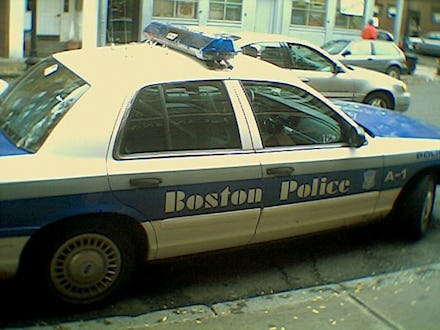New Report From Boston Shows a Massive Racial Gap in Stop and Frisks

It's been an all-around bad week for police conduct, and a new American Civil Liberties Union study won't make things look any rosier.
The ACLU's Boston chapter looked at every "stop and frisk" incident in the city, and what they found was a massive racial gap. Boston's black residents accounted for 63% of those stopped and frisked by Boston police from 2007 to 2010, even though they make up less than a quarter of the city's population.
The figures:
Most of these stops had no real reason behind them — three-quarters were classified simply as "investigate person" by the police department. And 97.5% of stops resulted in no seizures of illegal goods or arrests.
If that weren't enough, the ACLU report also found that black neighborhoods experienced more stops than white neighborhoods. It's a sordid state of affairs, especially for a city without the best reputation when it comes to the subject of race.
Another example: Boston may hate the New York comparison, but the latter city essentially ended its stop and frisk policy last year, leading to 90% fewer weekly police stops without a noticeable rise in crime, according to the New York Times.
Don't give the Big Apple too much credit, though. The change came after a federal judge called it unconstitutional, a ruling the city was prepared to fight until newly elected Mayor Bill de Blasio (who campaigned against stop and frisk) opted not to.
For its part, the Boston Police Department said in a statement that new policies were put in place in 2010 and that things are getting better: "While there is still some work be to done to ensure we are closing the gap on these racial disparities, the numbers of overall FIO activity are encouraging, and indicates the Department is headed in the right direction." FIO stands for Field Intelligence Observation, which refers to stops of people who haven't necessarily committed a crime.
Hopefully the department is right about that, Either way, the statistics from previous years are clear: Stop and frisk can be a racially discriminatory practice. (And it doesn't even work.)